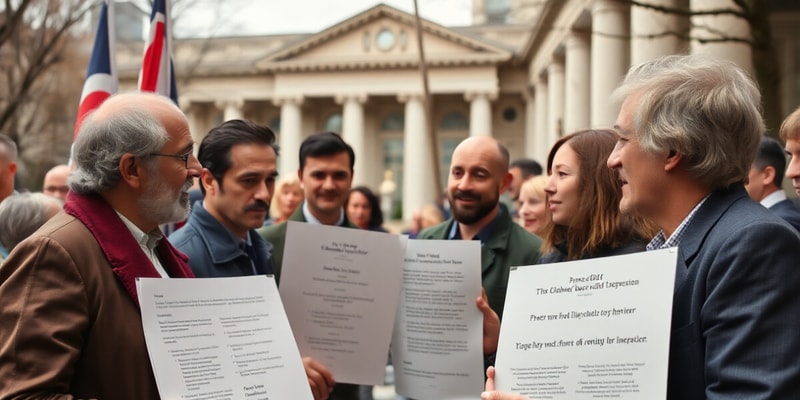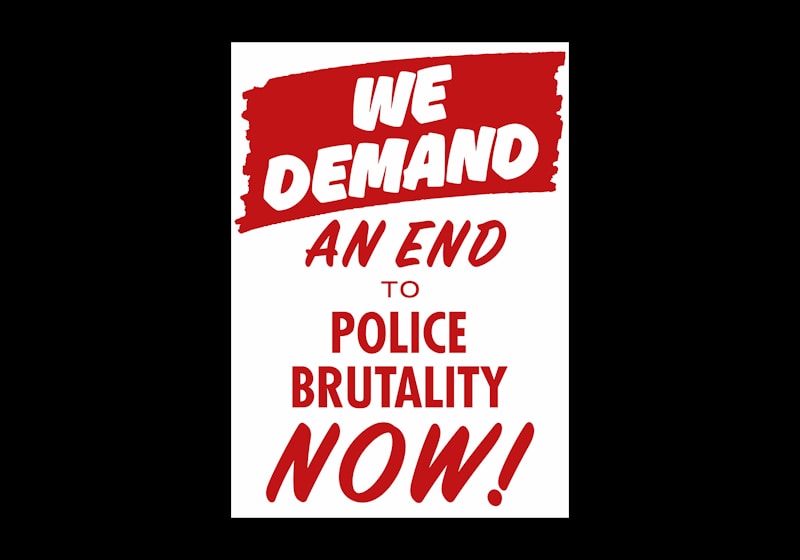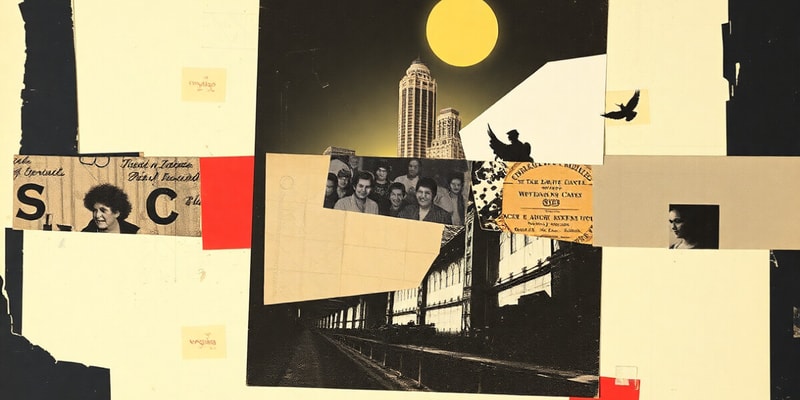Podcast
Questions and Answers
What is the University’s stance on handling conflicting ideas among committee members?
What is the University’s stance on handling conflicting ideas among committee members?
Which of the following is NOT a responsibility of the University regarding free speech?
Which of the following is NOT a responsibility of the University regarding free speech?
According to the content, how should conflicting ideas be addressed within the University?
According to the content, how should conflicting ideas be addressed within the University?
What does Robert M. Hutchins imply about the nature of a University?
What does Robert M. Hutchins imply about the nature of a University?
Signup and view all the answers
What role do attitudes, beliefs, and values play in determining behavior according to the content?
What role do attitudes, beliefs, and values play in determining behavior according to the content?
Signup and view all the answers
What was the main goal of the committee appointed in July 2014 at the University of Chicago?
What was the main goal of the committee appointed in July 2014 at the University of Chicago?
Signup and view all the answers
Who stated that freedom of expression is fundamental for the University and this principle will never be questioned?
Who stated that freedom of expression is fundamental for the University and this principle will never be questioned?
Signup and view all the answers
What significant event occurred 30 years after President Harper’s address?
What significant event occurred 30 years after President Harper’s address?
Signup and view all the answers
Which statement did President Robert M. Hutchins strongly support regarding student discussions?
Which statement did President Robert M. Hutchins strongly support regarding student discussions?
Signup and view all the answers
What did President Edward H. Levi refer to as the college's 'inheritance'?
What did President Edward H. Levi refer to as the college's 'inheritance'?
Signup and view all the answers
According to the University of Chicago's stance, what should never impede the free expression of ideas?
According to the University of Chicago's stance, what should never impede the free expression of ideas?
Signup and view all the answers
What type of expression does the University allow to be restricted?
What type of expression does the University allow to be restricted?
Signup and view all the answers
Which perspective did President Hanna Holborn Gray provide regarding education?
Which perspective did President Hanna Holborn Gray provide regarding education?
Signup and view all the answers
Study Notes
University of Chicago Statement on Freedom of Expression
- The University of Chicago has a long history of prioritizing free and open debate.
- President William Rainer Harper in 1902 declared freedom of expression as fundamental to the University.
- In 1932, the university invited William Z. Foster, the Communist party’s presidential candidate, to lecture on campus, triggering protests.
- President Robert M. Hutchins responded by arguing for freedom of discussion and confronting opposing viewpoints.
- President Edward H. Levi in 1968 reinforced the commitment to “freedom of inquiry” as the university’s “inheritance.”
- President Hanna Holborn Gray emphasized that education should challenge and provoke thought.
- The University acknowledges that its members may have conflicting ideas, but it will not shield them from ideas they disagree with.
- While valuing civility, the University will not restrict free expression to address civility concerns.
- The University reserves the right to restrict speech that violates the law, is false or defamatory, constitutes a genuine threat or harassment, invades privacy, or disrupts university operations.
- The University may regulate the time, place, and manner of expression to prevent disruption.
- The University prioritizes open debate, even if it involves conflicting ideas.
- Individuals are encouraged to engage in debate and deliberation to address conflicting perspectives.
- University members should not attempt to suppress opposing viewpoints, but rather to engage in lively debates.
- University members are expected to act in accordance with the principles of free speech, allowing diverse perspectives to be expressed.
- The University has a responsibility to protect freedom of expression from outside attempts at restriction.
- Robert M. Hutchins stated that without a vibrant commitment to free inquiry, a university ceases to be a university.
Additional Notes
- The text highlights the importance of free speech, open inquiry, and the responsibility to engage with diverse perspectives.
- It encourages individuals to critically examine and engage with conflicting ideas.
- Maintaining free speech requires a balance between allowing diverse perspectives and addressing potential harms.
- The University of Chicago's statement on freedom of expression serves as a guide for its community, encouraging robust and open discussion.
Studying That Suits You
Use AI to generate personalized quizzes and flashcards to suit your learning preferences.
Description
Explore the University of Chicago's commitment to free expression and open debate throughout its history. This quiz covers key moments and figures that have shaped the university's principles on inquiry and discussion. Test your knowledge on the importance of confronting opposing viewpoints in education.




